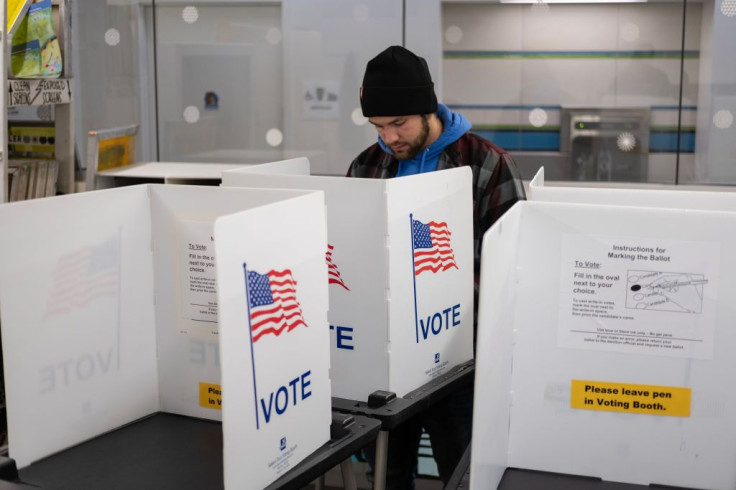
Young voters are much less likely to vote in next year's presidential elections than they were in 2020. Beyond their gender, ethnicity, political orientation or education level, all categories showed a decline in a new poll by the Harvard Kennedy School's Institute of Politics.
Latino voters, however, showed the steepest decline in terms of percentage points among all groups surveyed: the amount who said they would "definitely" vote next year dropped 16 percentage points, from 56 to 40 percent, compared to the poll conducted in the fall of 2019. That is almost 30 percent less than four years ago, making Latino voters the second group with the least amount of respondents behind Black voters.
"The bad news is that fewer young people intend to vote in this election compared to the Biden-Trump election of 2020. The good news is there's still time, and we know what Gen Z and young millennials want to see and hear. They want evidence that democracy works, that government can address our challenges, and that there's a meaningful difference between the two parties," said IOP Polling Director John Della Volpe.

Overall, the amount of U.S. citizens who "definitely" plan on voting for president dropped from 57 to 49 percent. This is potential bad news for Joe Biden, considering he has a solid, 11-point lead over former President Donald Trump in a hypothetical 2024 matchup. Concretely, it's 41 percent to 30 percent, while 13 percent said they were undecided and 15 percent said they are not going to vote, according to the poll.
That lead increases to 15 percentage points among young people who report being registered to vote and to 24 points among those who said they will definitely vote: 57 percent to 33 percent. In 2020, exit polls reported President Biden winning the youth vote 40 percent to 36 percent, so a lower turnout in this age group could impact his chances of winning across the country.
The silver lining for the president lies among party orientation: most of those who identified as Democrats said they still plan on voting, with a drop of only two percentage points, from 68 to 66 percent. The drop among Republicans, in contrast, was much steeper: from 66 to 56 percent. Figures for Independents went from 41 percent to 31 percent.
The introduction of third party candidates such as Robert F. Kennedy Jr., Joe Manchin and Cornel West, however, drastically changes the scene. "Among all young Americans, Biden leads by four points in a hypothetical matchup with three independent candidates: Biden 29 percent, Trump 25 percent, Kennedy 10 percent, West 3 percent, Manchin 2 percent, Don't know 31 percent," says the poll. "Among likely voters, Biden's lead is 16 points: Biden 43 percent, Trump 27 percent, Kennedy 10 percent, West 3 percent, Manchin 2 percent, Don't know 15 percent," it adds.
The Harvard Youth Poll of 2,098 18-to-29-year-olds was conducted between Oct. 23 and Nov. 6. The margin of error for the total sample is +/- 2.86%.
© 2025 Latin Times. All rights reserved. Do not reproduce without permission.





